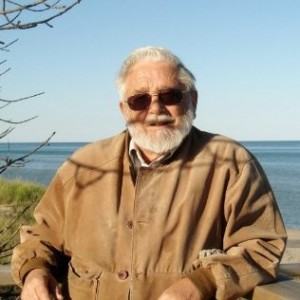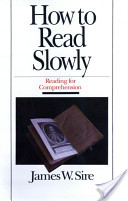
James W. Sire addresses another excellent question from Micheal Hickerson, ESN Blog Contributor:
Should Christians worry if they find themselves enjoying or gaining insight from artistic, literary or academic works by people from other worldviews?
I know that this has been a question within the Christian world from the ancients to the present. Didn’t Tertullian (c. 160-230) ask, “What has Athens to do with Jerusalem?” But, though I was brought up in a modestly fundamentalist community, the question has always seemed strange to me. Why not? I respond. All truth is God’s truth.
But let’s say that we find ourselves falling in love with the works of Virginia Woolf or Albert Camus —which, by the way, I have. What then? What truth could there be in their explicit rejection of orthodox Christianity? Well, for one thing, no writer can reject all truth. It takes quite a bit of truth just to continue living. For another, all people have something true to contribute to our understanding of the world and its wonders. If nothing else, they contribute the knowledge and wisdom they’ve accumulated by living out the image of God in which they were created.
Virginia Woolf in her fiction, for example, depicts for us what the world looks like from the inside out. To Betty Flanders with her eyes filled with tears
the entire bay quivered; the lighthouse wobbled . . . the mast of Mr. Connor’s yacht was bending like a wax candle in the sun (Jacob’s Room, p. 1).
True, the novel sees no hope for clarity from Christianity. But Woolf constructs a fascinating secondary world that imitates a key part of everyone’s world, one we would not likely recognize without the poetic intuition of a consummate artist.
Nor without Camus’ The Plague would we likely grasp either the inner and outer worlds of humanists, existentialists, nihilists, and Christians facing the chaos and evil of a world that appears utterly without meaning or value. True, the existentialist hope offered in this novel is not sufficient, but its attempt to answer Camus’ own “one truly serious philosophical problem . . . suicide” is easily seen to be inadequate. The Plague screams out for something else, something other, something more.
Okay, you say, but this is only an answer for you. Tertullian’s question still stands. Then listen to a couple Christian greats. Here’s Calvin:
In reading profane authors, the admirable light of truth displayed in them should remind us, that the human mind, however much fallen and perverted from its original integrity, is still adorned and invested with admirable gifts from its Creator (Institutes, II, 1. 15).
Commenting on Exodus 3:22, Augustine said:
For, as the Egyptians had not only the idols and heavy burdens which the people of Israel hated and fled from, but also vessels and ornaments of gold and silver, and garments, which the same people when going out of Egypt appropriated to themselves, designing them for a better use, not doing this on their own authority, but by the command of God, the Egyptians themselves, in their ignorance, providing them with things which they themselves were not making a good use of (De Doctrina, 40. 60).
We join the ancient Israelites in despoiling the Egyptians when we read Bertrand Russell’s Problems in Philosophy, as I did in my first philosophy course and was introduced to the patterns of thinking that have pervaded the university world for the past few centuries.
Of course we should recognize that we can be misled by “pagan” literature, but the benefits easily outweigh the dangers. We just need to keep in mind that all high quality literature expands our knowledge and sense of what it is like to hold a worldview other than our own. As C. S. Lewis said
In reading great literature I become a thousand men and yet remain myself. Like the night sky in the Greek poem, I see with a myriad of eyes, but it is I who see. Here, as in worship, in love, in moral action, and in knowing, I transcend myself; and am never more than myself than when I do (Experiment in Criticism, last paragraph).


Note: Wheaton College professor Alan Jacobs in A Theology of Reading* makes a detailed case for charitable reading of both Scripture and other literature, Christian and otherwise. My own How to Read Slowly encourages deep, enjoyable and critical reading of all prose and poetry in light of the worldviews they embody.
James W. Sire
November, 2012
*Editor Note: Mike Hickerson recently began digging into A Theology of Reading. See Is Your Academic Work Governed by the Law of Love? (ESN Blog. 10/23/2012).
—————————-
Thank-you! to Mike for another provocative question. Thank-you! to Jim for his response. If you’re a reader and desire to dig into the question further or ask another question, please reply to the blog post or email Tom. If you desire, we are more than willing to attribute the question to “Anonymous.”
A few follow-up questions for your consideration (personally or as part of a discussion):
- What artistic, literary or academic works by people from other worldviews have you particularly appreciated?
- If questioned on your appreciation, how have you responded?
- How do you find Sire’s response helpful in your interaction with artistic, literary or academic works by people from other worldviews?
Note: Click here for other ESN blog posts by Jim Sire, including excerpts from his autobiography Rim of the Sandhills.
Tom enjoys daily conversations regarding living out the Biblical Story with his wife Theresa and their four girls, around the block, at Elizabethtown Brethren in Christ Church (where he teaches adult electives and co-leads a small group), among healthcare professionals as the Northeast Regional Director for the Christian Medical & Dental Associations (CMDA), and in higher ed as a volunteer with the Emerging Scholars Network (ESN). For a number of years, the Christian Medical Society / CMDA at Penn State College of Medicine was the hub of his ministry with CMDA. Note: Tom served with InterVarsity Christian Fellowship / USA for 20+ years, including 6+ years as the Associate Director of ESN. He has written for the ESN blog from its launch in August 2008. He has studied Biology (B.S.), Higher Education (M.A.), Spiritual Direction (Certificate), Spiritual Formation (M.A.R.), Ministry to Emerging Generations (D.Min.). To God be the glory!

Leave a Reply